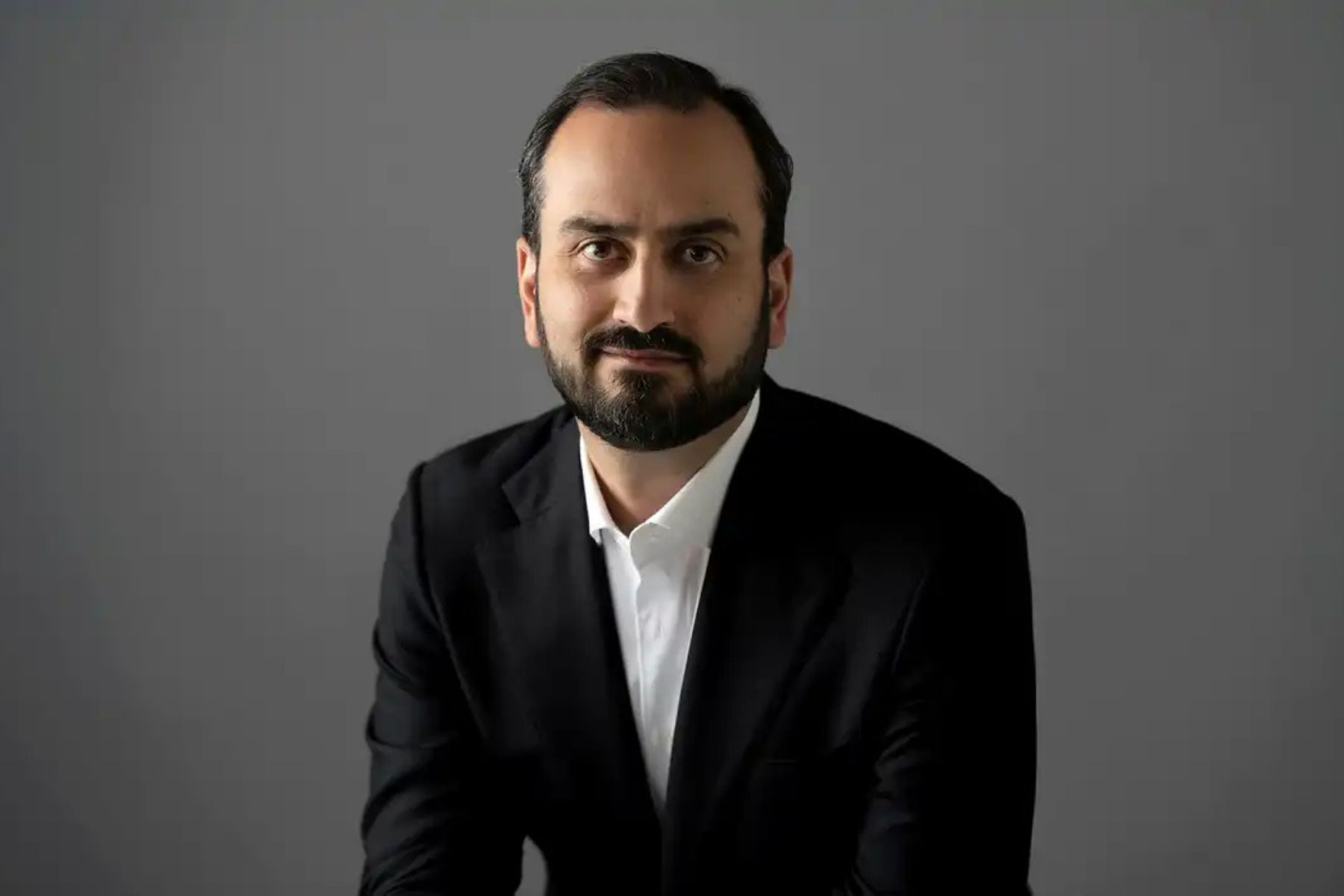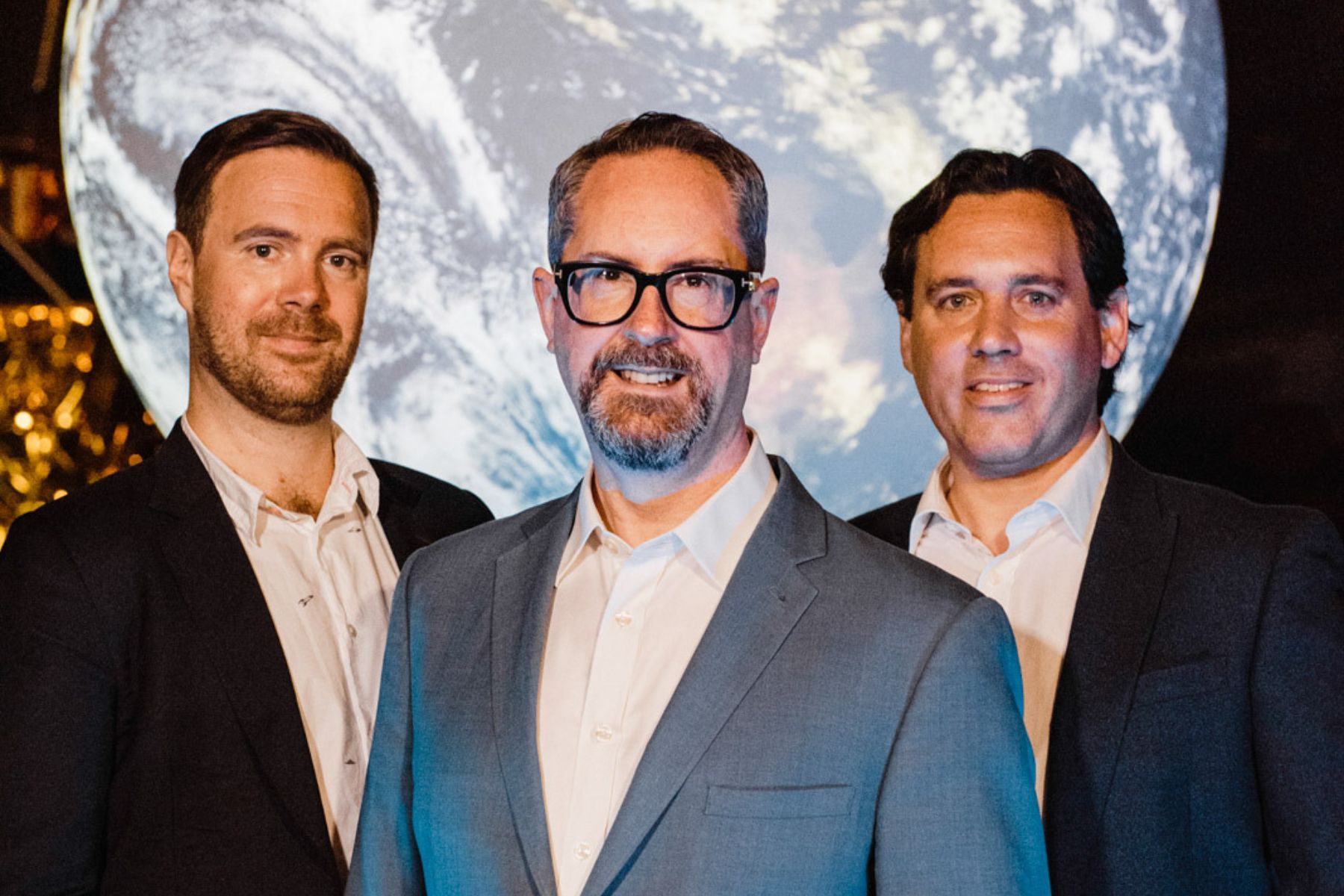'No Northvolt effect': Why northern Sweden is quietly becoming a magnet for impact capital
Despite the collapse of battery company Northvolt, northern Sweden is attracting growing interest among investors.<br><br>Impact Loop travelled to the Swedish city of Luleå to meet Stefan Lundblom, investment manager at Sweden's northernmost investment network, Arctic Ventures.<br><br>"The entrepreneurs here are more down-to-earth," he says, explaining the region's appeal.


Surrounded by pine and birch trees, Luleå Science Park blends traditional Swedish red-painted wooden buildings with a sleek, six-storey metal-fronted office block.
The campus lies a ten-minute bus ride from central Luleå, one of northern Sweden’s largest cities, home to around 80,000 residents and situated just below the Arctic Circle.
Often dubbed the world's most northerly science hub, the park is adjacent to Luleå University of Technology (LTU). It hosts a diverse array of businesses, from Swedish stalwarts like telecommunication giant Ericsson and energy company Vattenfall, to emerging impact and space startups.
It's also home to Arctic Ventures, northern Sweden’s most active business angel network. Comprising around 75 investors, the network backs startups selected for the Arctic Business Incubator programme, which celebrates two decades of nurturing over 200 companies this year.
Northern Sweden's top impact hub
Despite its remote location, Arctic Business Incubator was ranked among the top ten university-affiliated business incubators globally in 2018 by UBI Global, a Stockholm-based startup community and research organisation. In 2023, it was listed among the top six global ESG Rising Stars for its commitment to environmental and social sustainability.
"Sustainability is really important – it’s mandatory both for us, and the companies that we work with," says investment manager Stefan Lundblom.
Recent participants in the Arctic Business Incubator include Pileus Scandinavia which is developing a method to improve efficiency in the wind power industry by using cameras and artificial intelligence to detect ice formation on turbines at an earlier stage. Lundblom also highlights healthtech startups CareifAI, and Beep Insights.
A region attracting growing interest
Interest in sustainability-focused startups in northern Sweden has steadily increased over the past five years, says Lundblom. This aligns with broader European trends, where the EU and various governments are prioritising the green transition to bolster economies through sustainable industries, new technologies, and low-carbon transport.
However, northern Sweden also boasts unique assets attracting investors, Lundblom argues. Traditional industries like mining and forestry are actively developing and adopting carbon-cutting technologies. LTU offers a pool of international talent and a wealth of ideas ripe for commercialisation. Additionally, there's a strong regional focus on digitalisation.
"It’s become more common that we are visited by venture capitalists from the rest of Sweden and the Nordics, who want to check what’s happening here," says Lundblom. "They are here on a fairly regular basis now."
No negative 'Northvolt effect'
Arctic Ventures launched in 2018, with Lundblom joining in 2021 after a career in finance, business development and telecommunications.
Most angels in the network are based in Norrbotten and Västerbotten counties, encompassing cities like Skellefteå and Kiruna. Skellefteå is globally recognised for hosting the largest factory of electric battery manufacturer Northvolt, while Kiruna is Europe's largest mining city.
However, approximately a fifth of the network's angels hail from southern Sweden or other Nordic regions, who travel further north to scout new investments. "They get a chance to meet companies early, and if they find something they like, they can invest directly," says Lundblom.
Despite recent fears that Northvolt’s recent financial troubles could deter regional investment, Lundblom believes the impact has been minimal.
"There are a bunch of other investments taking place and I don't think we have seen any sort of, any negative effects of the Northvolt bankruptcy – yet, at least."
While raising funding beyond early-stage investments has become more challenging in the past couple of years, Lundblom attributes this to broader trends in the impact sector. "A lot of business angels and other investors seem to be fairly occupied with dealing with their existing portfolios… but that's something that the whole industry struggles with."
I don't think we have seen any negative effects of the Northvolt bankruptcy – yet, at least
A strategic location for space tech
Looking ahead, Lundblom sees the region's strategic location as a key advantage, particularly in supporting Europe's growing interest in space, resilience, and security startups.
"With these sectors, we believe that northern Sweden has a real advantage," says Lundblom. That's because the area is already home to established corporations working with satellites such as SSC (Swedish Space Corporation), which operates the Esrange Space Center near Kiruna – Europe’s largest civil space base for launching sounding rockets and testing satellites.
LTU is also the only higher education institution in Sweden offering a dedicated space education and research department. One notable spin-off is Remos Space Systems, a startup founded by Tanzanian-born engineer Dr Moses Browne Mwakyanjala. The company specialises in software-defined solutions for satellite ground operations and recently secured €1 million in seed funding led by Bling Capital and Partnerinvest Norr to support its global expansion.
Geographical challenges
Still, Lundblom acknowledges the region's geography presents challenges. Unlike other Nordic startup hubs like Stockholm and Helsinki, where meetings and networking events are concentrated in compact areas, the Arctic Ventures network is more dispersed. This can complicate bringing collaborators together.
"In Stockholm, you could hold a dinner and – at least theoretically – all the angels in a network could show up – but here that’s not going to happen for a two-hour meeting. You have to work with hybrid solutions – and that’s doable – but it's perhaps not the same as meeting in real life."
Lundblom also recognises that northern Sweden, like the broader Nordic market, may struggle to retain successful startups long-term. Impact Loop's interview with him takes place shortly after Gothenburg-based Heart Aerospace announces its move to the US.
"It's always got to be about what's best for the company. That's the most important thing," he says. "We have companies from here that have sort of flipped to the US as well. And during the last couple of years a couple of incubator companies have been acquired by big US companies such as Juniper Networks and LexisNexis. The big big fish eat the small ones. So that's how it works," he says.
Nevertheless, Lundblom hopes that northern Sweden's remoteness can remain an asset, by fostering a less competitive and more collaborative culture than in larger cities. This environment, he argues, makes it easier to connect with potential partners, investors, or businesses, even across different locations.
"Entrepreneurs are also often more realistic – that’s the feedback we often get from investors," the investment manager argues. "And we often hear we’re more down-to-earth, and the entrepreneurs here are more down-to-earth."
Get full access to Europe's new platform for impact news
- Quality journalism, interviews, investor profiles and deep-dives
- Daily newsletter with top stories, latest funding rounds and roundup to keep you in the loop
Keep reading – get in the loop!
- Håll dig i loopen med vårt dagliga nyhetsbrev (gratis!)
- Full tillgång till daglig kvalitetsjournalistik med allt du behöver veta inom impact
- Affärsnätverk för entreprenörer och investerare med månatliga meetups
Fortsätt läsa – kom in i loopen!
- Håll dig i loopen med vårt dagliga nyhetsbrev (gratis)!
- Full tillgång till daglig kvalitetsjournalistik med allt du behöver veta inom impact
- Affärsnätverk för entreprenörer och investerare med månatliga meetups









